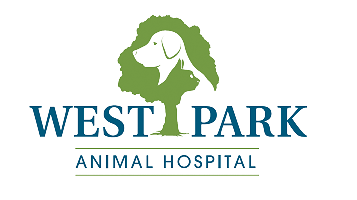
Herbicides and weed killers are great for ridding your yard of nuisance plants. However, pet owners must consider the risks of using these products. Some herbicides can be extremely harmful to your precious pup and may even become deadly if used incorrectly. Here, West Park Animal Hospital walks you through some of the weed killers that are safe for animals and the key things to look for when it comes to herbicides and pets.
Is Weed Killer Safe for Dogs and Cats?
Today, it may not seem too difficult to find herbicides labeled “pet safe.” However, it’s important to note that even if a chemical may say it’s safe or gentle on pets, there should be more specific details to support that claim. Some things to consider when using a weed killer in your yard include:
Over-Calculate Wait Times
Any type of chemical can leave particles behind that may stick around for longer than you think. Studies show that even though most weed killer bottles say that you and your pets should keep off sprayed lawns for only 6 to 24 hours, chemical residue can linger on surfaces for up to 48 hours after application. This study was noted to be true even if it rained. Regardless of whether a product claims to be pet safe, it doesn’t hurt to overestimate the wait time after application.
Organic or All Natural Doesn’t Always Mean Pet Safe
As briefly stated, the labels on many herbicides and lawn chemicals should be closely examined. It’s tricky to know what products are truly “safe” and which ones may be misleading. According to the National Pesticide Information Center (NPIC), even some products that claim to be “organic” or “all-natural” still may contain harmful ingredients, such as permethrin. This is a commonly used chemical in products labeled “all-natural”. NPIC’s permethrin fact sheet explains the risks of using products with this ingredient.
While there are a variety of things to think about when searching for pet-safe herbicides, the bottom line is that there is more research to be done than what may be in front of you. We understand that this can be overwhelming for many pet parents, which is why West Park Animal Hospital is happy to assist and share helpful pet resources online.
Choosing Herbicides That Are Safe For Pets
Although the most pet-safe way to rid your property of weeds is to remove them by hand, we understand that it may not be very practical, especially on large yards. For a totally chemical-free route, the American Kennel Club recommends trying to control weeds by planting native grasses. It has been found that many native grasses are more likely to resist weeds since they are bred to be suitable for the region. However, if this is not a plausible choice for you or you prefer a quicker solution, some types of pet-safe weed killer include:
- Bonide BurnOut Fast-Acting Weed and Grass Killer: This weed killer is a good choice because it contains few ingredients, all of which are considered safe for pets when used as directed. This formula is made using citric acid and clove oil.
- Green Gobbler Vinegar Weed and Grass Killer: This vinegar-based herbicide is a safe choice when used as directed. It is derived from USA-grown corn, OMRI-certified for organic use, and contains no dyes or chemicals.
- ECO Garden Pro Organic Weed Killer: This formula is made with organic white vinegar and Himalayan rock salt. Not only is this one safe for dogs and cats when used as directed, but it is also safe for bees, fish, and livestock.
These are just a few choices that have received positive feedback from animal owners, but some pets have different sensitivities. It is always a good idea to consult a veterinarian if you are hesitant about a product.
Manage Your Lawn While Keeping Your Pets Safe
By carefully selecting a weed killer that’s safe for dogs and cats, you can enjoy a weed-free lawn and a healthy pet. Leave it to the knowledgeable crew at West Park Animal Hospital to provide you with the reassurance and information you need to keep your pets safe. We proudly serve pet owners in Ohio, including West Park, North Olmsted, Berea, Rocky River, Lakewood, Fairview Park, and Cleveland, as well as other areas.
If you would like to make your furry friend a patient at our hospital, we’re accepting new clients. For more information, contact us today.

